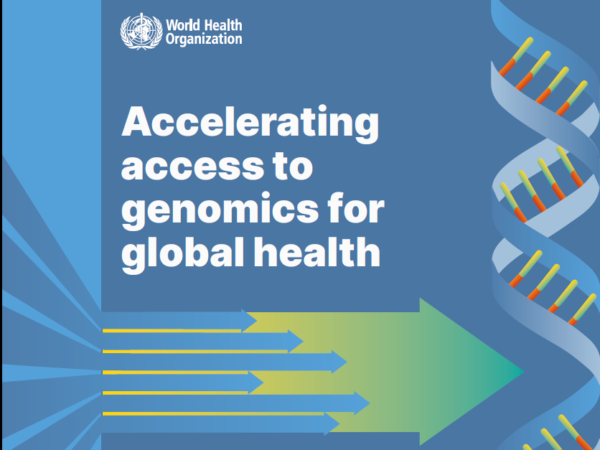WHO Science Council’s first report calls for equitable expansion of access to genomics for global health
WHO Science Council’s first report calls for equitable expansion of access to genomics for global health
Genomic surveillance is one of the new challenges of tomorrow’s global health: the AFROSCREEN network launched a year ago responds to the challenges of scientific and health equity, around which the WHO Scientific Council made its first report on July 12.

Established in 2021, the WHO Science Council advises the Director-General on WHO’s scientific agenda. On its first report, issued in July 2022, the Council underlines the significant benefits of human, microbial, agriculture and aquaculture genomics for health at individual and population levels due to their multiple applications, including prevention, diagnosis, treatment, monitoring and research.
The report follows the release in March 2022 of WHO’s global genomic surveillance strategy for pathogens with pandemic and epidemic potential, 2022–2032, which stated that the establishment of a surveillance and sequencing network is an essential public health tool for detecting and containing pathogens with epidemic potential.
The report makes 15 recommendations around under four themes (advocacy, implementation, collaboration, and associated ethical, legal and social issues) “to accelerate the establishment and sustained use of genomic technologies”. Indeed, the Council states that it is not ethically justifiable for low-income countries to gain access to new technologies, including genomics, long after high-income countries do, since, as stated by the WHO Chief Scientist, Dr Soumya Swaminathan: “Genomic technologies are driving some of the most ground-breaking research happening today. Yet the benefits of these tools will not be fully realized unless they are deployed worldwide. Only through equity can science reach its full potential impact and improve health for everyone, everywhere”.
Towards its aim to create or reinforce the sequencing capacities and genome surveillance systems in the 13 partner countries, the AFROSCREEN project is contributing to the effort WHO is calling for “to bring the benefits of genomics to everyone in an effective, ethical, and equitable manner.”
To find out more:
- Download the full report: https://www.who.int/publications/i/item/9789240052857
- – Download the WHO’s 10-year strategy for genomic surveillance of pathogens: https://www.who.int/publications/i/item/9789240046979
Established in 2021, the WHO Science Council advises the Director-General on WHO’s scientific agenda. On its first report, issued in July 2022, the Council underlines the significant benefits of human, microbial, agriculture and aquaculture genomics for health at individual and population levels due to their multiple applications, including prevention, diagnosis, treatment, monitoring and research.
The report follows the release in March 2022 of WHO’s global genomic surveillance strategy for pathogens with pandemic and epidemic potential, 2022–2032, which stated that the establishment of a surveillance and sequencing network is an essential public health tool for detecting and containing pathogens with epidemic potential.
The report makes 15 recommendations around under four themes (advocacy, implementation, collaboration, and associated ethical, legal and social issues) “to accelerate the establishment and sustained use of genomic technologies”. Indeed, the Council states that it is not ethically justifiable for low-income countries to gain access to new technologies, including genomics, long after high-income countries do, since, as stated by the WHO Chief Scientist, Dr Soumya Swaminathan: “Genomic technologies are driving some of the most ground-breaking research happening today. Yet the benefits of these tools will not be fully realized unless they are deployed worldwide. Only through equity can science reach its full potential impact and improve health for everyone, everywhere”.
Towards its aim to create or reinforce the sequencing capacities and genome surveillance systems in the 13 partner countries, the AFROSCREEN project is contributing to the effort WHO is calling for “to bring the benefits of genomics to everyone in an effective, ethical, and equitable manner.”
To find out more:
- Download the full report: https://www.who.int/publications/i/item/9789240052857
- – Download the WHO’s 10-year strategy for genomic surveillance of pathogens: https://www.who.int/publications/i/item/9789240046979